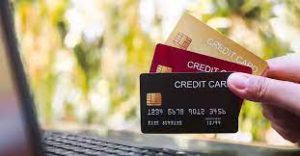He or she who wants a clear path to a new Mastercard will find practical answers here.
This short manual orients readers to three ICS-issued Mastercards: standard, Gold, and Student. It lists typical monthly costs, forex fees, purchase insurance periods, and travel protections so they see the value up front.
Eligibility rules are simple to follow: age and residency in the Netherlands, basic income or assets, and a lower threshold for students. The application is handled by ICS, with a PIN-selection email, about 10 working days for checks, and a 5–10 day delivery after approval.
The section also explains how the holder manages the product via the ICS online account for activation, blocking, and PIN help. It sets realistic expectations about acceptance at home and abroad and emphasizes responsible use all year long.
Why an ABN AMRO credit card in the Netherlands makes sense
A global payments solution combines travel convenience with added insurance and purchase protection for residents in the Netherlands.
The bank’s Mastercards work worldwide for hotel holds, rental cars, and international bookings where a deposit or hold is common.
Purchases on these credit cards include protection for theft, loss, or damage for at least 180 days. The Gold option extends that to 365 days. Trips booked with the card often add flight and luggage delay insurance.
Cards make online purchases smoother and act as a safe fallback when a merchant prefers other methods. In Dutch daily life, many shops accept Visa and Mastercard, but supermarkets still favour debit cards.
Users can add the card to Apple Pay for quick contactless payments. Monthly statements help people separate business expenses and larger purchases from everyday checking. The bank’s dispute protections strengthen consumer rights on undelivered or faulty goods.
Pairing a credit instrument with a Dutch debit account gives the best coverage: use debit for routine shopping and the card for travel, reservations, and high-value purchases.
Eligibility and requirements for ABN AMRO credit cards
Residents of the Netherlands who meet basic income or asset rules can apply for the bank’s Mastercard options.
Applicants must be at least 18 years old and live in the Netherlands. They should hold or open a bank account with the issuer before submitting an application.
Standard approval routes include a steady net income—usually at least €1,150 per month—or enough freely taxable capital in box 3. The asset route requires roughly €20,000 held over the past two years.
Students face a lower threshold: about €500 net per month makes the Student option possible while keeping lending checks prudent.
ICS processes assessments and may ask for income documents. Dutch banks often check BKR records to understand past repayment behavior. Applicants should consider monthly money flows to pick a limit that fits their account and avoids strain.
Official information lists clear thresholds so people can self-assess before applying. ICS makes the final credit decision and may adjust initial limits after verification.
Choosing the right ABN AMRO card: Student, Credit Card, or Gold Card
Deciding which card fits starts with comparing price, purchase protection, and travel coverages.
The three main options weigh monthly rates against insurance length and travel benefits. The Student option costs about €1.16 per month and needs roughly €500 net income. It includes 180-day purchase insurance and basic travel delay coverages.
The standard credit card sits at roughly €2.15 per month. It offers 180-day purchase protection plus flight and baggage delay coverages. This option balances low rates with useful everyday benefits.
The Gold version costs about €4.45 per month and upgrades insurance to 365 days. It also adds broader travel protection, which often pays off for frequent travelers or high-ticket purchases.
All cards run on the Mastercard network, work worldwide, support Apple Pay, and are managed via ICS. Many people start with the standard option and upgrade to Gold later if longer insurance windows or extra travel coverages become worth the extra rate.
Costs, fees, and limits to know before you apply
Understanding recurring charges and spending limits helps people avoid surprises. Monthly fees are small but add up, so check both the per month rate and the full per year cost before choosing an option.
The typical pricing is: standard at €2.15 per month (~€25.80 per year), Gold at €4.45 per month (~€53.40 per year), and Student at €1.16 per month (~€13.92 per year). These per month rates are billed each month and appear on the bank account statement.
Expect a 2% forex fee for non-euro payments. ICS usually sets an initial spending limit after assessing income and records. Applicants can ask for limit changes later once they show steady use.
He or she should plan payment timing so the statement date matches salary inflows. Paying the full balance each month avoids interest and preserves savings. Compare included purchase and travel protections to separate insurance costs when weighing options.
Finally, check whether the package with your main account affects fees. Responsible use, timely payment, and keeping some available limit for emergencies keep money management simple across Dutch banks and cards.
ABN AMRO credit card request guide: the step-by-step application
The application moves through a few clear stages so applicants know what to expect. They begin in online banking, choose the desired option, and complete personal and income fields carefully before submitting.
After submission, ICS sends a secure email with instructions to select a PIN. Prompt PIN selection keeps the timeline on track while the issuer evaluates the file. The assessment usually takes around 10 working days.
Once approved and the PIN is set, the physical item ships to the applicant’s home and typically arrives within 5–10 working days. He or she activates the product through the ICS portal, checks security settings, and adds it to Apple Pay for quick payments.
Applicants should confirm their abn amro bank account details, keep proof of any income asked for, and note the per year fee for their records. They also set statement alerts, enable two-factor security, and verify delivery address and mailbox access to avoid delays.
Approval timeline, delivery, and what to expect from ICS
Applicants should plan around a roughly ten-working-day assessment, plus a separate shipment window after the PIN is set. ICS usually completes the application check in about 10 working days, then posts the physical card within 5–10 working days.
Delivery goes to the registered home address, so applicants are advised to ensure mailbox access and have ID ready if a signature is required. Keeping tracking information helps avoid a missed package and speeds activation.
The ICS portal and app provide 24/7 access for activation, blocking, PIN help, and transaction information. Users can set up direct debit for monthly payment to clear the statement and reduce the chance of missed fees.
Acceptance is broad: Visa and Mastercard work worldwide, though some Dutch supermarkets still prefer debit. ICS may set an initial spending limit and then adjust it after steady use and timely repayments. If timelines slip, contacting ICS with requested documents usually resolves delays quickly.
*You will stay on the same site.
Activate, manage, and use your card securely
A few routine actions let users turn a delivered card into a secure tool for travel and everyday payments. They start activation and PIN setup via ICS Creditcard Online, then add the plastic or virtual account to Apple Pay for fast contactless purchases.
To raise protection, they enable transaction alerts and two-factor authentication where available. Strong passwords and timely statement reviews reduce fraud risk and improve banking access.
Built-in insurance covers most purchases for 180 days, and the premium option extends protection to 365 days. Trips booked with the instrument often include flight and luggage delay insurance, which helps when travel plans change.
In the Netherlands, they use debit for groceries where merchants may not accept credit. Checking the linked bank account keeps monthly reconciliation simple and helps them pay the statement on time.
If the item is lost or suspected of fraud, they lock or block access immediately with ICS. They also use dispute processes for online purchases that never arrive or are damaged, and keep utilization low to protect money and maintain healthy limits.
Your next steps to confident credit card use in the Netherlands
Make a simple plan to pair a Dutch bank account with the best card option for travel and everyday purchases.
Set up direct debit so monthly payments clear on time. In the first month, activate, add to Apple Pay, enable alerts, and test an online purchase.
Use credit responsibly: keep utilization low and pay the balance in full to avoid interest. Track income and expenses so per year costs fit the budget.
Keep a small cash and a debit backup for supermarkets and niche merchants. Save receipts for larger purchase claims and contact ICS quickly if an issue arises.
Review features, rates, and per year fees once a year and compare cards netherlands options only if circumstances change.





